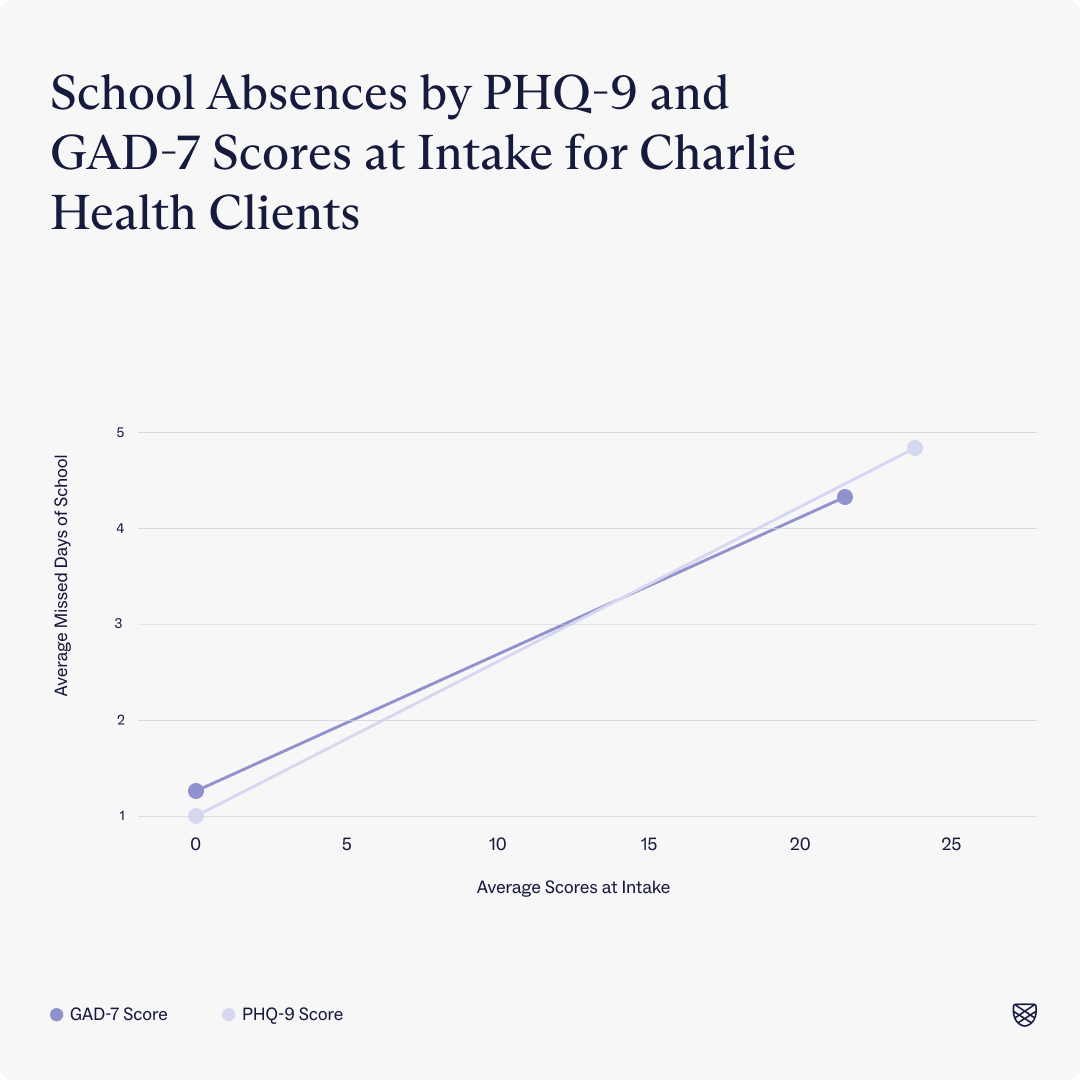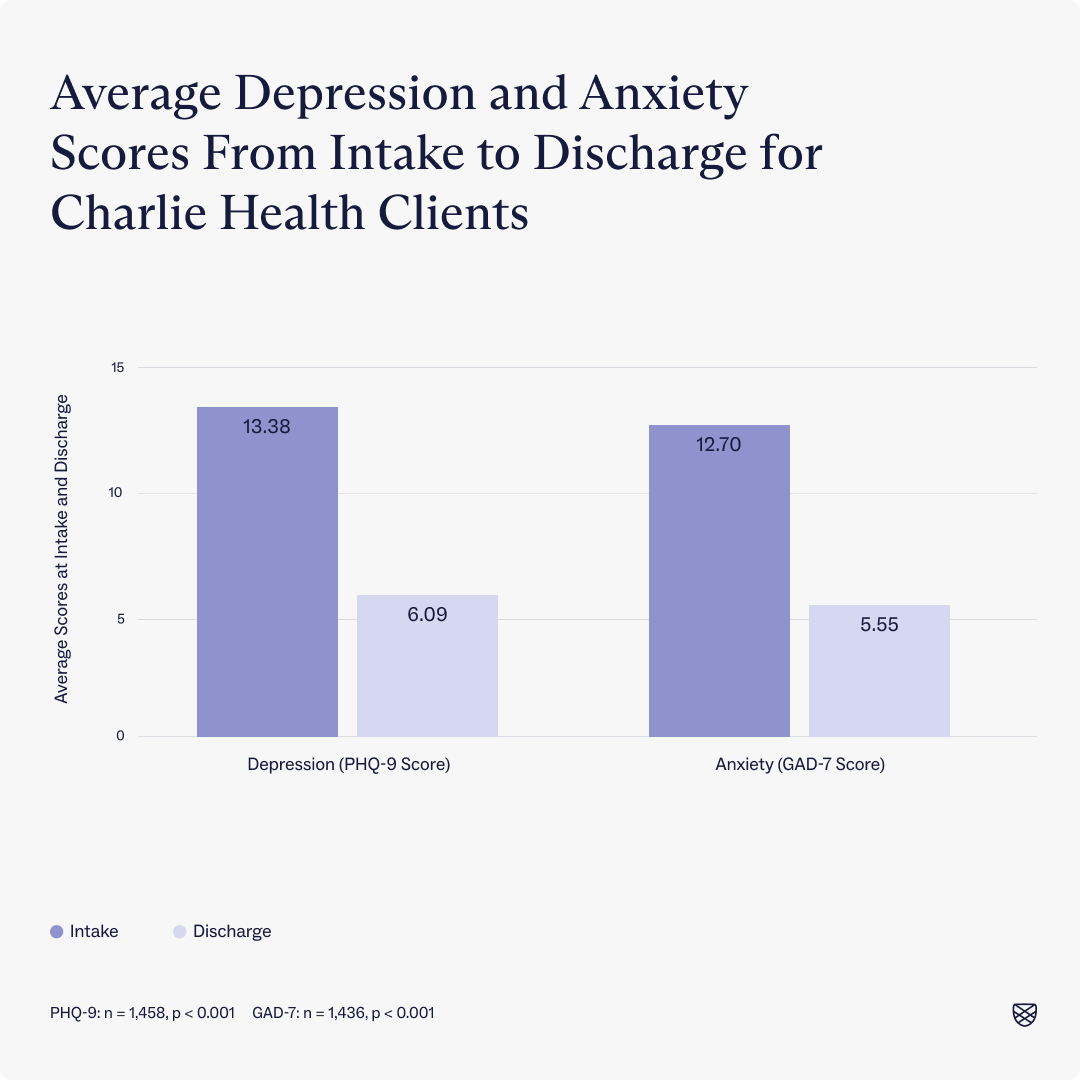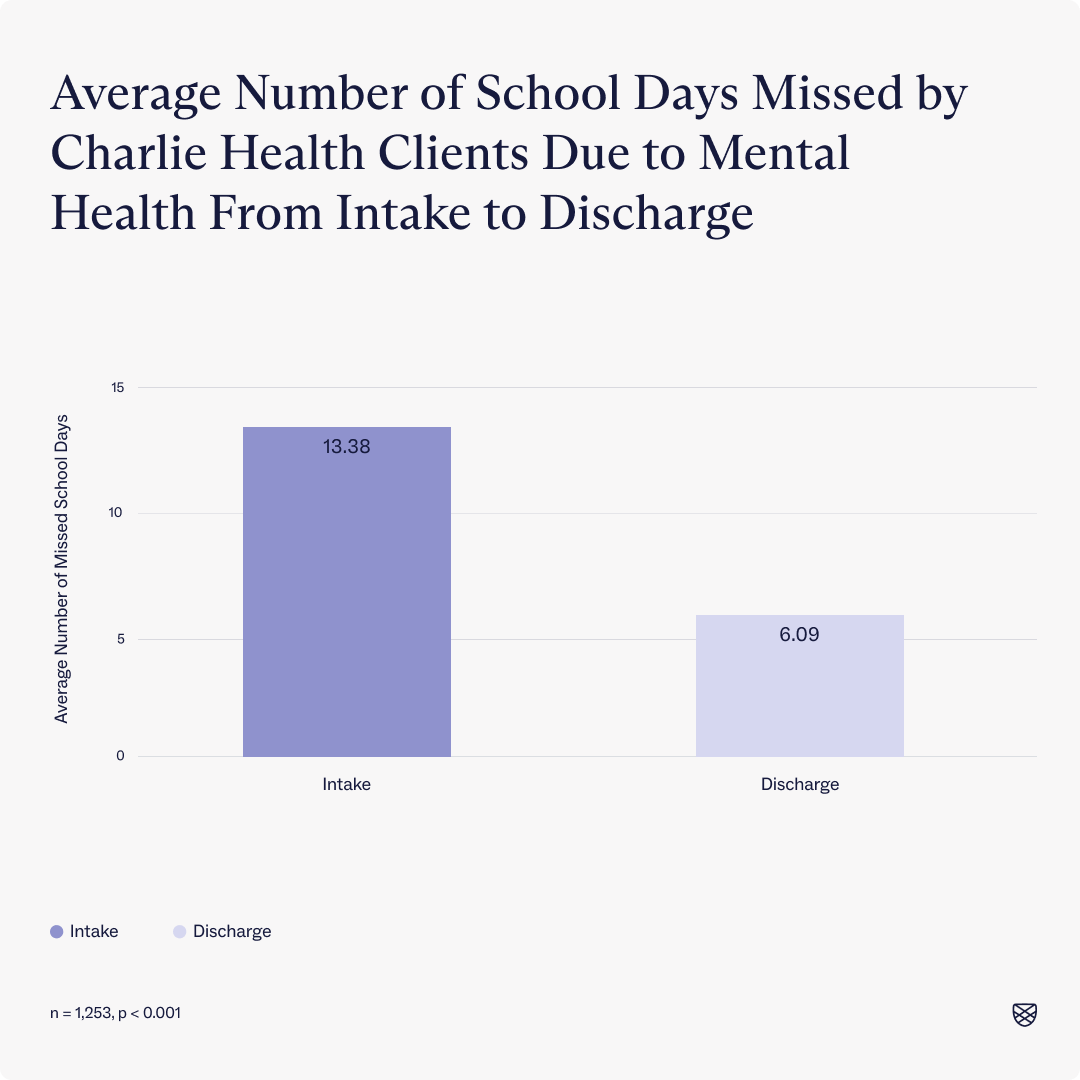
Table of Contents
Mental Health Issues Make School Harder—Here’s How Charlie Health Helps

Written By: Elizabeth Kroll

Clinically Reviewed By: Sarah Lyter
August 23, 2024
4 min.
Learn how mental health issues impact school performance and how Charlie Health supports students who are struggling.
Learn more about our Clinical Review Process
Table of Contents
For many students, going back to school means new backpacks, notebooks, and pens, as well as seeing friends more regularly. However, for the 20% of children between the ages of 3-17 who experience a mental health condition, the start of the school year can also bring heightened stress and anxiety. For these young people, the transition can be fraught with increased worry about social interactions, fear of academic pressures, and difficulty adjusting to new routines.
At Charlie Health, we understand these unique challenges and are committed to supporting students through this critical time. About 80% of our adolescent clients report attending school during the academic year, and we provide tailored support to address their mental health needs while they continue their education — and our outcomes show significant improvements both in a reduction in mental health symptoms and absenteeism following treatment. Below, we delve into the data on the impact of mental health on school and how we support Charlie Health clients who are students.

We make going back to school easier
Fill out our quick form below to learn if Charlie Health is right for you.
How mental health shapes school success
Government data indicates that there are approximately 26 million children enrolled in grades 6 through 12 in the United States. Among these students, around 6.6 million are estimated to face some kind of mental health condition in the coming year. The impact of mental health on school performance is profound and well-documented. Research shows that poor mental health correlates to lower grades, lower attendance, and higher rates of dropout.
Additionally, poor mental health can stop children from attending school altogether, whether that’s because of school avoidance or physical health concerns caused by mental health challenges such as stomach aches or headaches. A pre-COVID study found that approximately 17% of children in Oregon with behavioral and mental health conditions missed 11 or more days of school, compared to only 13.5% of children without behavioral and mental health conditions.
Addressing mental health in schools is therefore not just about supporting individual students, it’s also about improving overall educational outcomes and creating a healthier, more inclusive learning environment for all — key priorities for Charlie Health.
Charlie Health data: Impact of mental health on school attendance and support
At Charlie Health, clients fill out an intake survey on their first day in groups so that we can track their progress through our program, and track program efficacy. Between September 2023 and May 2024 (the 2023-2024 school year), 80% of our adolescent clients who filled out this survey reported being enrolled in school.
Our data revealed significant findings about the impact of mental health issues on school attendance. Clients who reported missing school due to mental health challenges had 56.93% higher depression scores at intake (as measured by the PHQ-9) and 52.32% higher anxiety symptoms (as measured by the GAD-7).

On average, these clients missed about 2.87 days of school per week, and this absenteeism was closely linked to higher scores of both depression and anxiety — the more severe their symptoms, the more school days they missed. When looked at together, these findings highlight a strong correlation between mental health struggles and school absenteeism.

Additionally, our survey showed that clients who missed school reported feeling less supported by their families and peers compared to those who did not miss school. It’s possible that lower levels of perceived family and peer support can further contribute to feelings of isolation and stress, making it even harder for students to engage with their education and maintain regular attendance.

The great news is that with the right treatment, these negative trends can be effectively reversed, leading to significant positive changes in clients’ mental health. For clients who reported school concerns when they started treatment, depression and anxiety rates decreased dramatically from intake to discharge. Among these clients, depression and anxiety measures decreased by more than 50%, data shows.

Treatment with Charlie Health also leads to improvement in students’ school lives. For example, among clients who reported missing school frequently at the time of intake (on average 4 days per week), there was an impressive 72% improvement in reducing the number of days missed by the time of discharge — amounting to only one missed day per week. This indicates that our treatment not only addresses the underlying mental health challenges but also helps clients re-engage with their daily responsibilities, like attending school, which is crucial for their overall development and well-being.

School, mental health, and Charlie Health: Our findings
According to our data, clients at Charlie Health who struggled with school absenteeism due to mental health issues at intake often report notable improvements in their mental health following treatment, both in terms of mental health symptoms and reduced absenteeism. By addressing mental health concerns, we are able to improve quality of life and provide adolescents with the skills to manage their harder days without retreating.

How Charlie Health can help
If you or a loved one is dealing with serious mental health challenges that are affecting school performance, Charlie Health is here to help. Charlie Health’s virtual Intensive Outpatient Program (IOP) provides more than once-weekly mental health treatment for young people and families. Our expert clinicians incorporate evidence-based therapies into individual counseling, family therapy, and group sessions. With this kind of holistic treatment, managing serious mental health issues is possible. Fill out the form below or give us a call to start healing today.
References




